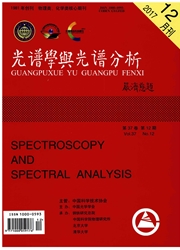

 中文摘要:
中文摘要:
积雪混合像元分解方法研究及积雪比例产品的发展是积雪遥感的重要研究方向。在我国北疆地区利用SVC HR-1024野外便携式光谱仪观测了已知积雪比例的混合像元光谱特征并进行系统分析,同时,采用四种混合像元分解模型对实测光谱进行解混及精度评价。结果表明反射率随积雪比例均匀下降并不呈均匀的线性变化,在不同波段呈非线性变化特征,积雪像元解混精度与观测尺度的不同有一定的联系,尺度越小,解混精度越低;进一步对实测光谱的解混结果表明,线性回归法精度较低,特别是对于积雪比例小于50%的解混结果不准确,稀疏回归解混法和非负矩阵解混法略高于线性混合像元分解法,但线性混合像元分解法运算效率最高,稀疏回归解混法运算效率最低,当对遥感图像进行解混时,要综合考虑四种方法的计算效率。通过将推动积雪混合像元分解定量遥感研究,并为遥感影像准确提取积雪比例提供理论依据。
 英文摘要:
英文摘要:
The unmixing algorithms of mixed snow pixels and the fractional snow cover products are an important research direction for snow remote sensing. In the present study, we first designed the mixed snow pixels of different snow fraction/proportion in Northern Xinjiang, China as ground truth. Then, a SVC HR-1024 ground-based spectral radiometer was used for measuring the spectral property of this designed pixel for different snow fractions and different underlying surfaces. Finally, using the measured spectral data, the four mixed-pixel decomposition models were validated and evaluated for their performance in terms of accuracy and computational efficiency. The results showed that the reflectivity does not decline linearly with the reduction of snow ratio in the pixel, and that the unmixing accuracy inversely depends on the scales of the observation. Further, the comparison of the above mentioned unmixing algotihms showed that the linear regression method has the worst accuracy, especially when the snow proportion is less than 50% ; the accuracy of sparse regression algorithm and non-negative matrix factorization were slightly higher than the full constrained linear mixed-pixel decomposition; however, full constrained linear mixed-pixel decomposition method had higher computational efficiency than the other two methods; the sparse regression algorithm has lowest computational efficiency. With unmixing remote sensing images, due to the large data volumes, we must consider the algorithms' computational efficiency. This study would promote quantitative researches on snow mixed pixel decomposition, and provide a theoretical basis for accurately extracting the snow coverage of interest area using remote sensing images.
 同期刊论文项目
同期刊论文项目
 同项目期刊论文
同项目期刊论文
 Spatio-Temporal Change of Snow Cover and Its Response to Climate over the Tibetan Plateau Based on a
Spatio-Temporal Change of Snow Cover and Its Response to Climate over the Tibetan Plateau Based on a A new approach of dynamic monitoring of 5-day snow cover extent and snow depth based on MODIS and AM
A new approach of dynamic monitoring of 5-day snow cover extent and snow depth based on MODIS and AM A novel solution for outlier removal of ICESat altimetry data: a case study in the Yili watershed, C
A novel solution for outlier removal of ICESat altimetry data: a case study in the Yili watershed, C The Measurement and Retrieval of the Spectral Reflectance of Different Snow Grain Size on Northern X
The Measurement and Retrieval of the Spectral Reflectance of Different Snow Grain Size on Northern X Observations of Snow Mixed Pixel Spectral Characteristics Using a Ground-Based Spectral Radiometer a
Observations of Snow Mixed Pixel Spectral Characteristics Using a Ground-Based Spectral Radiometer a Comparing the impact of cloudiness on carbon dioxide exchange in a grassland and a maize cropland in
Comparing the impact of cloudiness on carbon dioxide exchange in a grassland and a maize cropland in 期刊信息
期刊信息
